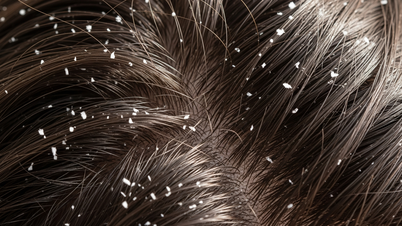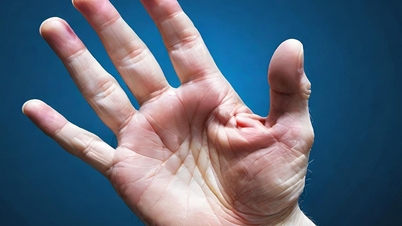One of the most common mistakes when washing your hair is to scratch your scalp with your fingernails, especially when you feel an uncomfortable itch on your scalp. However, this can cause irritation and peeling scalp, according to health site Healthline (USA).

Wet hair and scalp before shampooing.
Experts advise against scratching your scalp with your fingernails. The best way is to use your fingertips to rub your scalp. Circular motions and gentle pressure from your fingertips are enough to clean your scalp and hair.
Another common mistake when washing hair is when we are in a hurry to get somewhere, we will take a quick shower and want to wash our hair quickly. At this time, we tend not to wet our hair properly before washing. The rush also makes people tend to wash their hair quickly to apply conditioner and be done with it. However, both of these methods can damage the hair.
According to hair experts, wetting your hair and scalp properly before washing is a very important step. You can stand under the shower and let the water run down your hair and scalp. However, you should not stand under it for more than 2 minutes. If you wash your hair almost every day, the habit of rinsing your scalp with water for too long can cause dry skin.
When applying shampoo or conditioner to your hair, experts also recommend leaving the shower after rinsing all the shampoo or conditioner from your hair. Rushing your hair washing can leave these products on your scalp. As a result, they can clog pores and cause irritation and itching.
Getting your hair wet and thoroughly rinsing shampoo and conditioner from your hair might make you think you need more time in the shower. However, this is not necessarily true. Experts say that just 10 minutes in the shower is enough to wash your hair and shower.
Because washing your hair too often or bathing for too long will increase the time your skin is exposed to water. As a result, the water will wash away the natural oils on your skin and hair, leading to hair that is prone to dryness and dry skin. Dry skin will increase the risk of contact dermatitis and seborrheic dermatitis, according to Healthline .
Source link


![[Photo] Panorama of the cable-stayed bridge, the final bottleneck of the Ben Luc-Long Thanh expressway](https://vphoto.vietnam.vn/thumb/1200x675/vietnam/resource/IMAGE/2025/9/30/391fdf21025541d6b2f092e49a17243f)
![[Photo] Solemn opening of the 12th Military Party Congress for the 2025-2030 term](https://vphoto.vietnam.vn/thumb/1200x675/vietnam/resource/IMAGE/2025/9/30/2cd383b3130d41a1a4b5ace0d5eb989d)
![[Photo] The 1st Congress of Phu Tho Provincial Party Committee, term 2025-2030](https://vphoto.vietnam.vn/thumb/1200x675/vietnam/resource/IMAGE/2025/9/30/1507da06216649bba8a1ce6251816820)
![[Photo] President Luong Cuong receives President of the Cuban National Assembly Esteban Lazo Hernandez](https://vphoto.vietnam.vn/thumb/1200x675/vietnam/resource/IMAGE/2025/9/30/4d38932911c24f6ea1936252bd5427fa)
![[Photo] General Secretary To Lam, Secretary of the Central Military Commission attends the 12th Party Congress of the Army](https://vphoto.vietnam.vn/thumb/1200x675/vietnam/resource/IMAGE/2025/9/30/9b63aaa37ddb472ead84e3870a8ae825)































































































Comment (0)